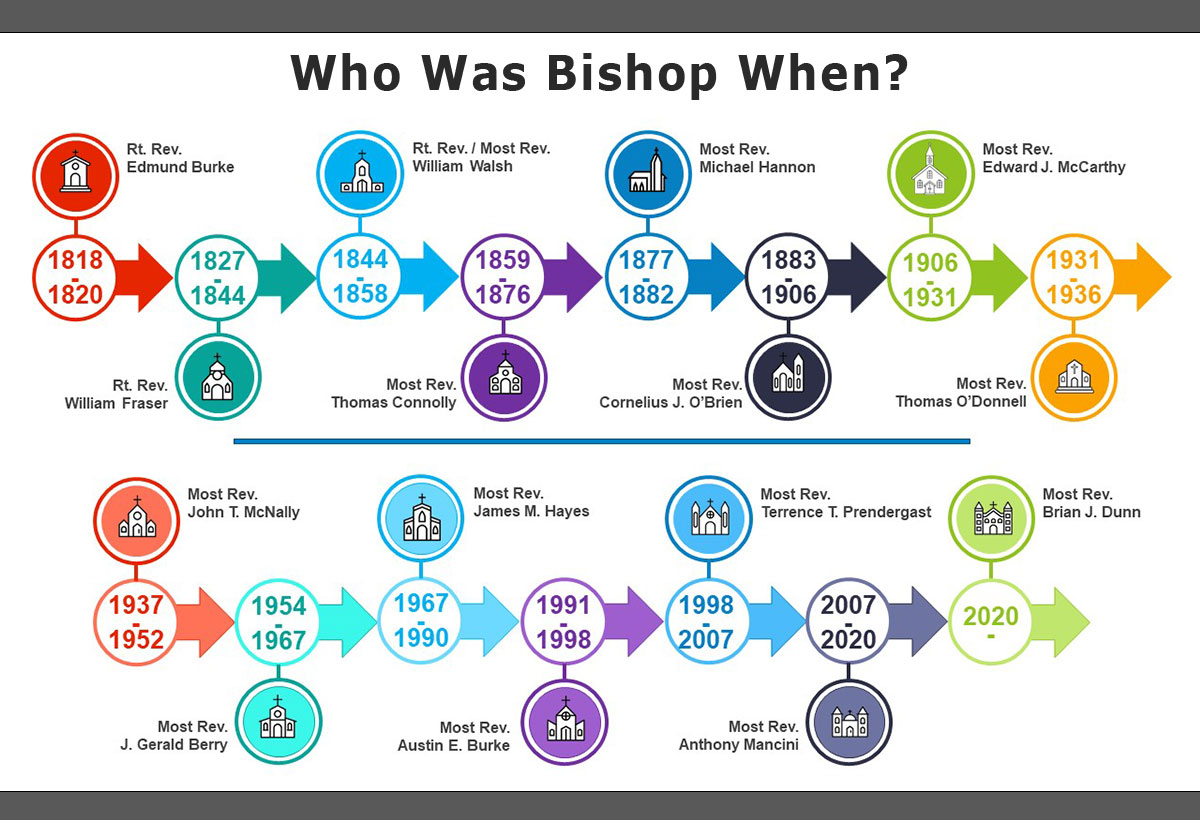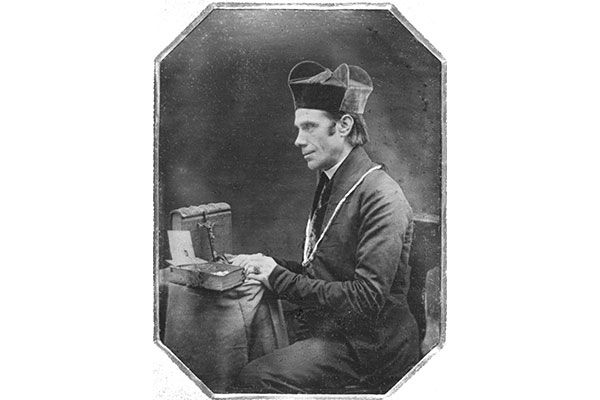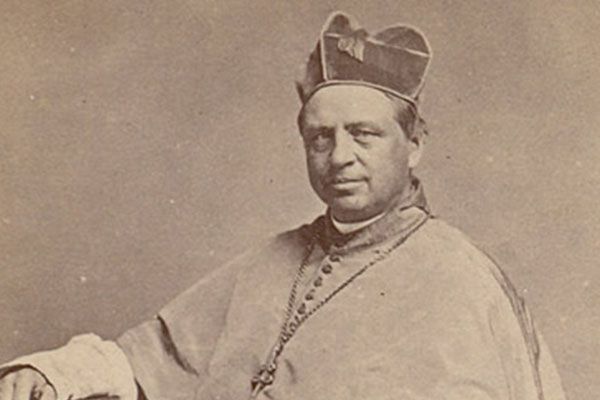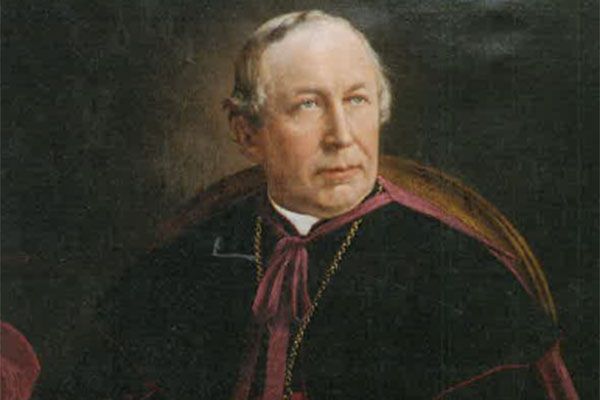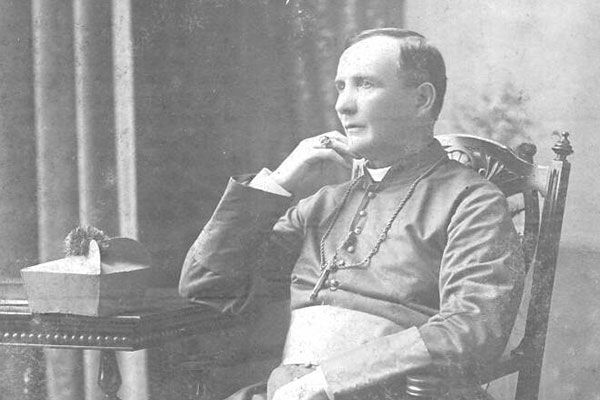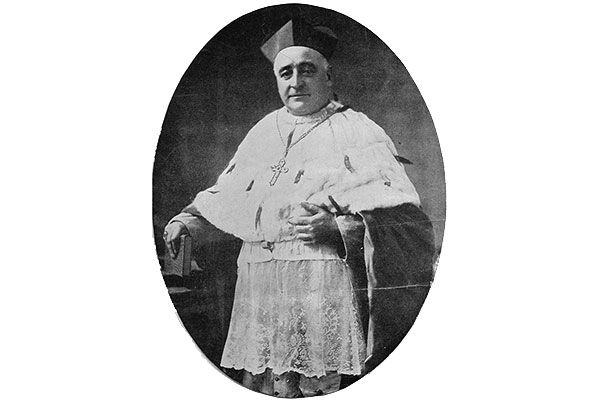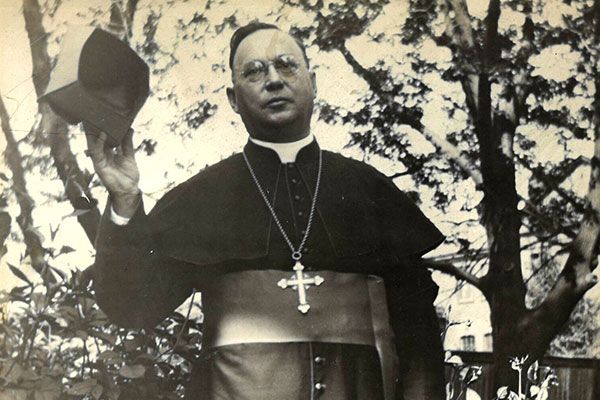Rt. Rev. Edmund Burke
Bishop of Zion, First Vicar Apostolic of Nova Scotia
1818-1820
“Edmund Burke, the brilliant professor, the zealous missionary imperilling his life to prevent unprincipled traders from trafficking in rum with the Indians, the outspoken though courteous controversialist and the successful Bishop, must take a high place amongst the great men who have left their mark on the pages of our history.”
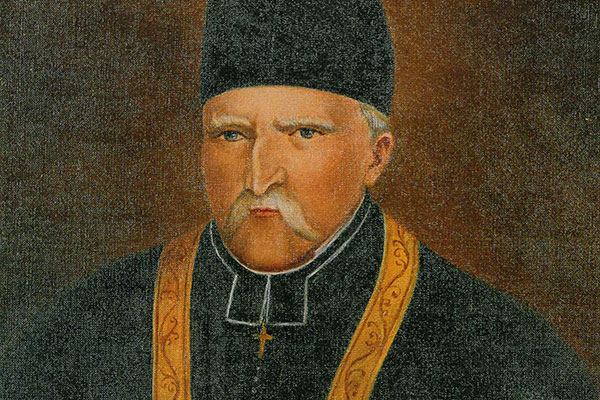 “Edmund Burke, the brilliant professor, the zealous missionary imperilling his life to prevent unprincipled traders from trafficking in rum with the Indians, the outspoken though courteous controversialist and the successful Bishop, must take a high place amongst the great men who have left their mark on the pages of our history.”
“Edmund Burke, the brilliant professor, the zealous missionary imperilling his life to prevent unprincipled traders from trafficking in rum with the Indians, the outspoken though courteous controversialist and the successful Bishop, must take a high place amongst the great men who have left their mark on the pages of our history.”
Edmund Burke was born in 1753, in Marysborough, Queen’s County, Ireland. Since Penal laws against Catholic Education were still in effect in Ireland at the time, it was necessary to go abroad to obtain a professional education, and he was sent to Paris as a young man to study for the priesthood. He returned to Ireland to accept an appointment to the parish of Kildare. The succession to the Episcopal See of his diocese had been hotly contested, and since he had supported a particular candidate for the office, opponents made his life miserable and hampered his ministry. He decided to go to Canada, knowing that there was a need for missionary priests. He arrived in Quebec at the age of 33 in the summer of 1786, to serve under Bishop D’Esglis, bishop of Quebec.
When he first arrived in Canada, he taught Philosophy and Mathematics at the Seminary of Quebec “at great credit to himself, and benefit to the numerous students who crowded to hear [his] lectures” 2 although he himself, in a letter to the newly appointed bishop of Dublin, lamented that his teaching position “require[d] greater talents than these with which the author of nature was pleased to bless [him]” 3 Fr. Burke was, at heart a missionary, and he longed to be about that business, but found himself in an impossible position, which he described this way: “The Governor General will not permit me to give a public instruction on any religious subject within the City of Quebec; and the Bishop in title will not permit me to leave the town.” 4 In the meantime, he was painfully aware that “There is a vast extent of country….in which, though there are a great number of posts and several Indian villages whose inhabitants are Catholics, there is not, nor has there been a single missionary since the conquest of this province.” 5
He entreated his friend, Dr. Troy, the bishop of Dublin to petition Rome for permission to establish a mission and to confer the sacrament of Confirmation “if His Holiness should think proper to grant it.”6 His desire to serve in this way was delayed by an appointment to the Parish of St. Peter on the Island or Orleans, but still he waited and prayed for the opportunity to minister to the regions north and west of the great lakes. He was finally given that opportunity in the 1794, when Governor Simcoe wrote to the Governor-General that he “much desired that a priest, loyal to the king, and of proved fidelity, might be sent to Raisin River, in the west of Lake Erie, to instruct the people in morality and their duty towards the king.”7 Bishop Hubert sent him out as Vicar General for the whole of Upper Canada.
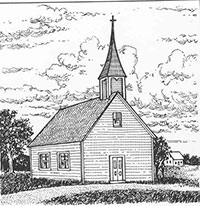 St. Peter’s Church, Halifax St. Peter’s Church, Halifax |
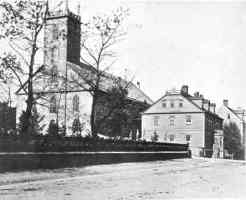 |
| The original St. Mary’s Cathedral |
During his time in Upper Canada he worked tirelessly to see to it that the spiritual needs of Catholics in Upper Canada were met. He was also deeply concerned for the welfare of the Aboriginal Peoples, and struggled to learn their languages, and protect them from exploitation.
Father Burke was sent to take over the mission of Halifax, arriving on Oct 2 1801 to take up residence as the parish priest of St. Peter’s church. St. Peter’s was the first church in Halifax, built by a handful of prominent Catholic businessmen and craftsman, on the site of what is now St. Mary’s Cathedral Basilica. Prior to Fr. Burke’s arrival, there had been difficulties between the parish priest and many of those same parishioners. Within a few months of Fr. Burke’s arrival, the parishioners wrote to Bishop Denaut, then the bishop of Quebec “with pleasure we inform your Lordship, that through the Mercy of God, all dissensions are gone away, peace and harmony are restored.” 8
Fr. Burke made great strides in promoting and supporting Catholic life in Halifax during his time here. Commenting on the vibrancy of Catholic worship which he witnessed during his visit to Halifax in 1815, Bishop Plessis, then Bishop of Quebec, wrote, “nothing more is needed to convince one that the spirit of religion is as fervent [in Halifax] as in any Christian community in the diocese of Quebec.”9
In response to a recommendation made by Fr. Burke during a trip to Rome in 1815, Nova Scotia was established as a Vicariate Apostolic on Dec 11 of that year. On May 19, 1817, Fr. Burke was appointed a Vicar with Episcopal Character, and on July 5, 1818, he was consecrated Titular bishop of Zion and Vicar Apostolic of Nova Scotia.
Bishop Burke accomplished much within a very short period of time. He established a school for girls, and later a school for boys, and both were well attended. He had several young men studying for the priesthood, and he made personal visitations to much of the diocese, by stage coach or by boat.
|
|
| Bishop Burke's Burial Record |
Perhaps his most visible and lasting legacy is the construction of St. Mary’s Cathedral, which began under his leadership. The original church was 106’ x 66’. It was later enlarged by Bishop Connolly. Sadly, Bishop Burke did not live to see the completion of the Cathedral. He passed away on November 29th, 1820, having asked his caregivers to lay him on the floor. He was interred in the burying ground of St. Peter’s (which had been on the site of what is now St. Mary’s) and his remains were later moved to Holy Cross Cemetery.
Archives Contact
Sharon Riel
Archivist - Halifax Office
Archdiocese of Halifax - Yarmouth
(902) 429-9800 ext 314
